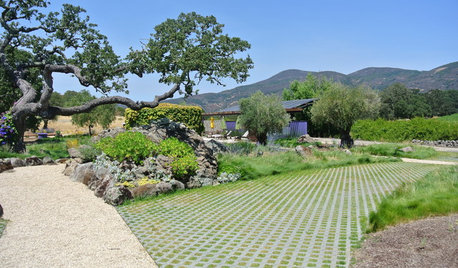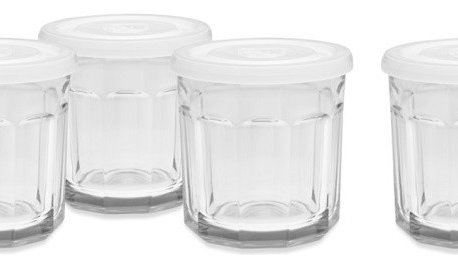The cost of healthier products.....
everlasting
16 years ago
Related Stories

KITCHEN DESIGNEcofriendly Kitchen: Healthier Kitchen Cabinets
Earth-friendly kitchen cabinet materials and finishes offer a host of health benefits for you and the planet. Here's a rundown
Full Story
HEALTHY HOMESleep Happier and Healthier in a Toxin-Free Bedroom
Light pollution, toxic bedding, wallpaper that off-gases ... if you're not getting good sleep, these bedroom blights might be to blame
Full Story
ARCHITECTUREBuilding Green: How to Plan Your Site for Healthier Living
Learn the many ways to create a more eco-friendly environment on your land
Full Story
LANDSCAPE DESIGNEasy Ways to Manage Stormwater for Lower Bills and a Healthier Earth
Send cleaner runoff into local waterways and spend less on yard irrigation with these simple landscaping approaches
Full Story
GREEN BUILDINGBuilding Green: How to Design a Healthier Landscape
Plant selection, water management, fire-prevention measures and more can ensure that your landscape is good for the planet and for you
Full Story
PRODUCT PICKSGuest Picks: Take Your Lunch to Work in Style
Eat healthier, save money and look great at your desk with containers, wrappings and bottles made for meals to go
Full Story
GREEN BUILDINGEcofriendly Cool: Insulate With Wool, Cork, Old Denim and More
Learn about the pros and cons of healthier alternatives to fiberglass and foam, and when to consider an insulation switch
Full Story
GREEN BUILDING5 Things LEED Interior Designers Want You to Know
LEED means healthier homes — OK, maybe you got that. But some of these facts about the accredited designers may surprise you
Full Story
EARTH DAYGrow a Beautiful Garden With Ecofriendly Greywater
Reducing home water waste means lower bills and a healthier planet. Here's how to set up a greywater home irrigation system that can help
Full Story
LIFE11 Tiny Tricks That Make Life a Tad Better
Make these small tweaks to your home and daily routine, and life will be easier, less rushed and maybe healthier too
Full Story





macbirch
skagit_goat_man_
Related Professionals
Barrington Hills Landscape Architects & Landscape Designers · Manorville Landscape Architects & Landscape Designers · Prairie Ridge Landscape Architects & Landscape Designers · Springfield Landscape Contractors · Bellefontaine Neighbors Landscape Contractors · Mission Bend Landscape Contractors · North Chicago Landscape Contractors · Pikesville Landscape Contractors · Santa Ana Landscape Contractors · South Lake Tahoe Landscape Contractors · Sudbury Carpenters · Homestead Fence Contractors · Lansing Fence Contractors · Olive Branch Fence Contractors · Simi Valley Fence Contractorssteve_o
macbirch
scrappyjack
steve_o
scrappyjack
skagit_goat_man_
buffburd
postum
everlastingOriginal Author
steve_o
everlastingOriginal Author
steve_o
skagit_goat_man_
diggerdee zone 6 CT
playsinthedirt20
bry84
scottamuss
tanya47
eric_wa
nnsgarden
steve_o
ninos
sniffmeister
wecareagain
scrappyjack
ninos